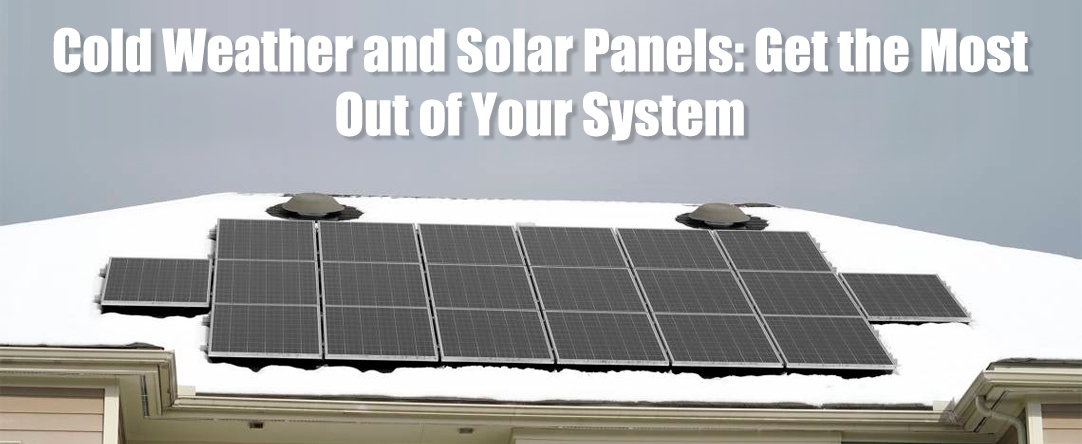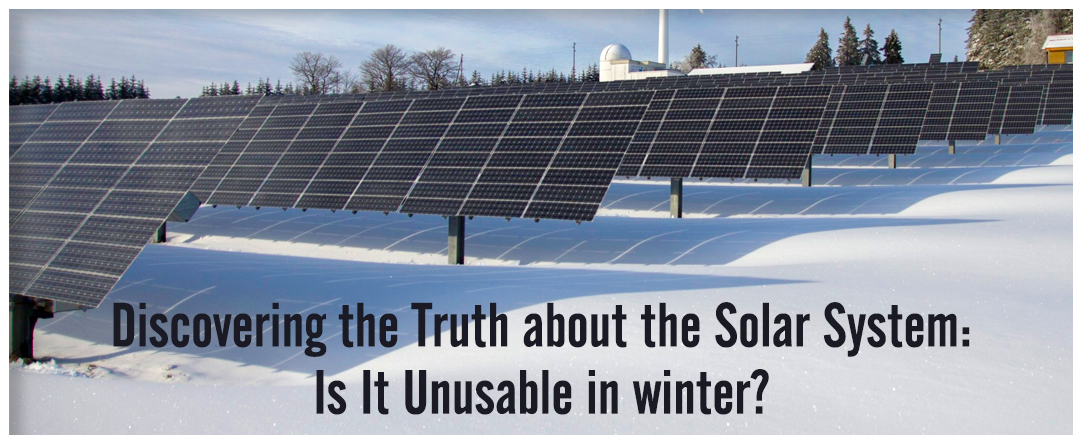
Cold Weather and Solar Panels: Get the Most Out of Your System
December 17, 2022
Discovering the Truth about the Solar System: Is It Unusable in winter?
December 14, 2022A wonderful option to lower your carbon footprint and save money on energy bills is to install solar panels in the winter. However, it’s essential to consider a few factors before taking the plunge. From choosing the right panels to assessing the weather conditions, Installing Solar Panels in winter requires careful planning. This blog will discuss what you need to consider before installing solar panels in winter.
If you’re considering installing solar panels in your home, contact a qualified installer like Maxpower to get started.
Benefits of Installing Solar Panels in winter
Installing solar panels in winter can have several benefits, including reducing your energy bills and carbon footprint. Here are key reasons why installing solar panels in winter is a good idea:
1. Reduced Energy Bills:
Winter is a time of year when energy usage tends to be lower, which means you’ll likely experience decreased energy bills from your utility company. Installing solar panels during the winter can offset some of that lost power and reduce your overall energy costs.
2. Effect on Climate Change:
One of the main goals of climate change legislation is to reduce greenhouse gas emissions, and one way to do that is through reductions in our reliance on fossil fuels. Solar panel installation can play an essential role in helping achieve this goal by generating renewable energy.
Reduction in CO2:
One of the significant contributors to global warming is the release of CO2 into the atmosphere from activities like combustion and respiration. By installing solar panels, you’re helping reduce your CO2 emissions, which can also have environmental benefits beyond just reducing your electricity bill.
4. Saving Money on Your Next Electric Bill:
A recent study found that over 50% of people who installed solar panels saw their electricity bills decrease by at least 25%. In fact, for many people, it was as much as 50%. This shows that with some research and planning, you can save money on your energy bills – even in cold weather climates.
Factors to consider before Installing Solar in winter
Installing solar panels in winter can be a great way to reduce your energy costs, but there are some factors to consider before you make the decision:
Weather Conditions
The colder months of the year are a great time to consider installing solar panels because temperatures are generally lower than in the summer, and there is less chance of rain. However, there are a few factors you should keep in mind when installing solar panels during winter:
- Make sure your roof can support the weight of the panels. The roof should be checked for structural integrity, and if it is weak or not properly sealed, the panels may not be able to support their weight.
- Consider installing solar panels on an east- or west-facing wall. East-facing panels will get more sunlight throughout the day, while west-facing panels will get more sunlight in the morning and afternoon.
- Get a quote from several solar companies to see which one has the best price/performance ratio for your area and type of roofing.
- Insulate your home as much as possible before installing your solar panels because cold weather causes energy savings in heating costs over time.
Potential Hazards
There are many potential hazards to consider when installing solar panels in winter. Some factors include weather conditions, snow cover, installation methods, and electrical safety.
Snow Cover: If snow covers the solar panel array during winter months, it will reduce the amount of sunlight that reaches the panels and can also create an obstacle for wiring and equipment installation.
Installation Methods: The best way to install solar panels in winter is to use a trench system. This allows for easy wiring and makes maintenance easier down the road. However, trench systems are usually more expensive than other installation methods.
Electrical Safety: Ensure you have a safe electrical system before installing solar panels in winter. If you choose this option, you’ll need a licensed electrician to help with the installation process.
How to Maximize Efficiency When Installing Solar in winter
Here are a few more tips on how to maximize efficiency when installing solar in winter:
1. Make sure your solar installation is well-lit
When it’s dark outside, your solar panels will generate less electricity. You’ll need to install more panels or use more powerful light bulbs to compensate for the lost output.
- Factor in the wind chill factor
Solar panels work best when they’re kept warm, and cold weather can decrease their efficiency by up to 50%. To combat this, you’ll want to insulate your panel installation and ensure plenty of ventilation around them so heat can escape.
- Secure your installation
In extreme weather conditions such as snowstorms or high winds, even small mistakes can lead to damage or loss of equipment. Ensure your installation is appropriately anchored and weighted down (to reduce movement) if necessary.
- Heating your home with wood or oil
During the colder months, it can be challenging to keep your home warm enough using traditional heating methods. If this is a problem, consider installing solar panels to supplement your heating system. This will help you save money on your energy bill while also helping protect the environment.
- Take other energy-saving measures
When it comes to reducing your energy consumption, there are many things you can do. These include turning off lights when you’re not using them, putting curtains and blinds in your windows, and installing weather stripping around doors and windows.
Wrapping it up
Installing solar panels in winter can be a great decision. You can make the most of your solar energy system with proper planning and preparation. Consider the roof structure and insulation, the angle of the panels, and the inverter’s capacity before installing a solar system in winter to ensure the best performance and results. With proper maintenance and care, a solar system can significantly reduce your energy costs and carbon footprint in the winter months.




